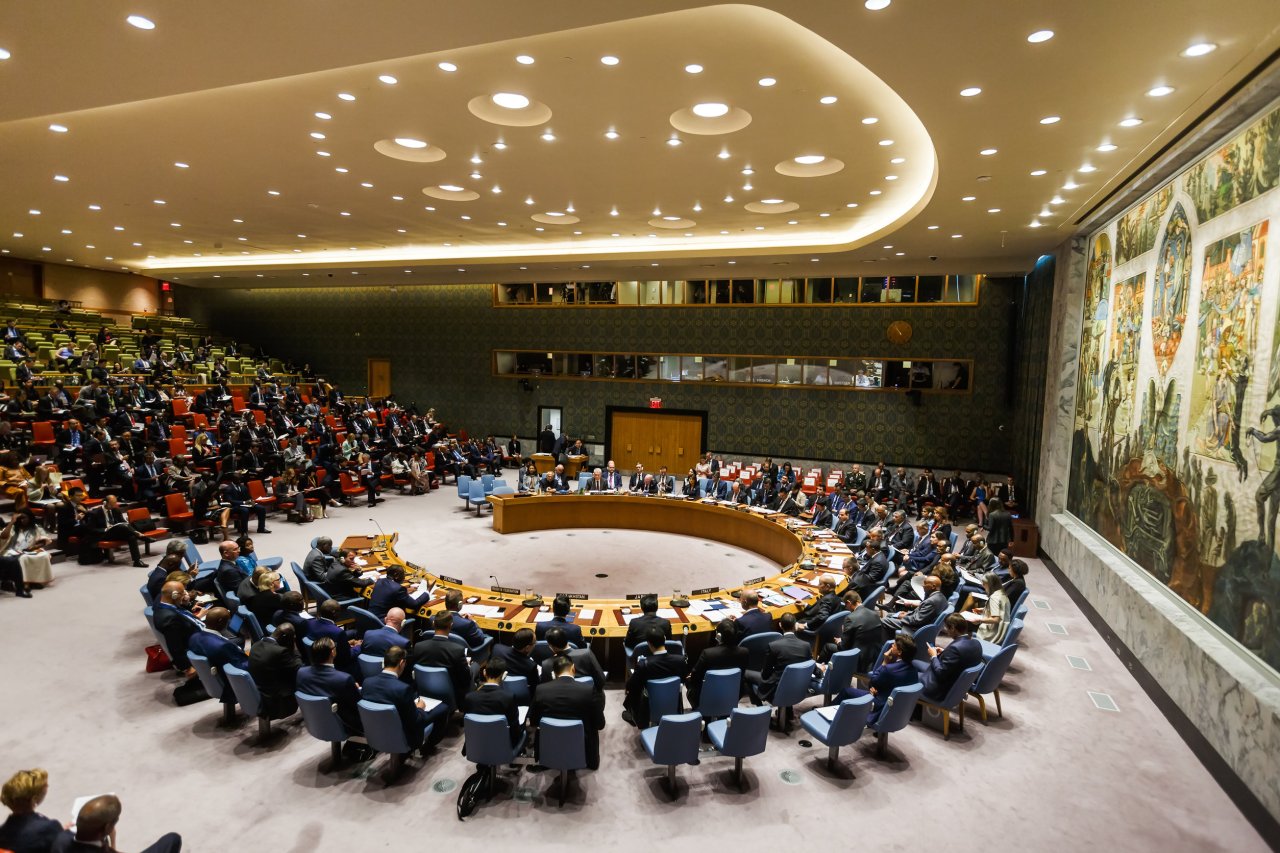New NK sanctions face up to 6-month delay on China and Russia’s objection
By Ahn Sung-miPublished : Jan. 25, 2022 - 15:18

The US’ push to impose UN sanctions on five North Koreans responsible for the regime’s recent missile launches could be delayed for at least six months, after China and Russia blocked the move.
Norway, which holds the rotating presidency of the UN Security Council in January, confirmed that China and Russia have put a hold on a US initiative to impose additional UN sanctions on the regime, according to a Voice of America report Tuesday. It added that the block period can last up to six months.
After that, another council member can extend the delay for an additional three months, before it is permanently removed from the council’s agenda. This means Washington’s bid to impose further sanctions against the reclusive regime will be difficult for the time being.
Beijing and Moscow’s veto came before a closed-door UNSC meeting on North Korea last Thursday in response to Pyongyang firing tactical guided missiles on Jan. 17 in defiance of UN resolutions.
Pyongyang has conducted five weapons tests this month, starting with two purported hypersonic missile tests on Jan. 5 and Jan. 11, followed by two short-range ballistic missiles from a train on Jan. 13 and two tactical guided missiles on Jan. 17. On Tuesday, Pyongyang appears to have test-fired at least two cruise missiles from an inland area.
The back-to-back missile launches escalated tensions on the Korean Peninsula and prompted Washington to impose first sanctions on the regime over its weapons program, blacklisting six North Koreans, one Russian and a Russian firm on Jan. 12, for procuring goods for the regime’s weapons program.
Washington then proposed the UN Security Council extend a similar travel ban and asset freeze on five of those North Koreans, a decision which requires a consensus by the 15-member council’s sanctions committee on the North.
In blocking the additional sanctions, Beijing reportedly said it needed more time to study Washington’s proposal, while Russia said more evidence was needed to back the US’ proposal.
China and Russia’s objection was largely expected as the two countries that have close ties with Pyongyang have long called for easing pressure on the North, and even requested lifting some international sanctions, citing humanitarian reasons.
Before last week’s emergency Security Council meeting, Linda Thomas-Greenfield, the US ambassador to the UN, stressed the need for all council members to impose sanctions on North Korea, as she read out a joint statement of eight countries condemning Pyongyang’s weapons test that violated the UN resolution.
“We have these sanctions for a reason, and for any member state to oppose putting sanctions on that have been agreed by the entire Security Council gives, in my view, the DPRK a blank check, as I said before,” she told reporters, using the acronym of the North’s official name, the Democratic People’s Republic of Korea.








![[Graphic News] More Koreans say they plan long-distance trips this year](http://res.heraldm.com/phpwas/restmb_idxmake.php?idx=644&simg=/content/image/2024/04/17/20240417050828_0.gif&u=)
![[KH Explains] Hyundai's full hybrid edge to pay off amid slow transition to pure EVs](http://res.heraldm.com/phpwas/restmb_idxmake.php?idx=644&simg=/content/image/2024/04/18/20240418050645_0.jpg&u=20240419100350)






![[From the Scene] Monks, Buddhists hail return of remains of Buddhas](http://res.heraldm.com/phpwas/restmb_idxmake.php?idx=652&simg=/content/image/2024/04/19/20240419050617_0.jpg&u=20240419175937)

![[KH Explains] Hyundai's full hybrid edge to pay off amid slow transition to pure EVs](http://res.heraldm.com/phpwas/restmb_idxmake.php?idx=652&simg=/content/image/2024/04/18/20240418050645_0.jpg&u=20240419100350)

![[Today’s K-pop] Illit drops debut single remix](http://res.heraldm.com/phpwas/restmb_idxmake.php?idx=642&simg=/content/image/2024/04/19/20240419050612_0.jpg&u=)